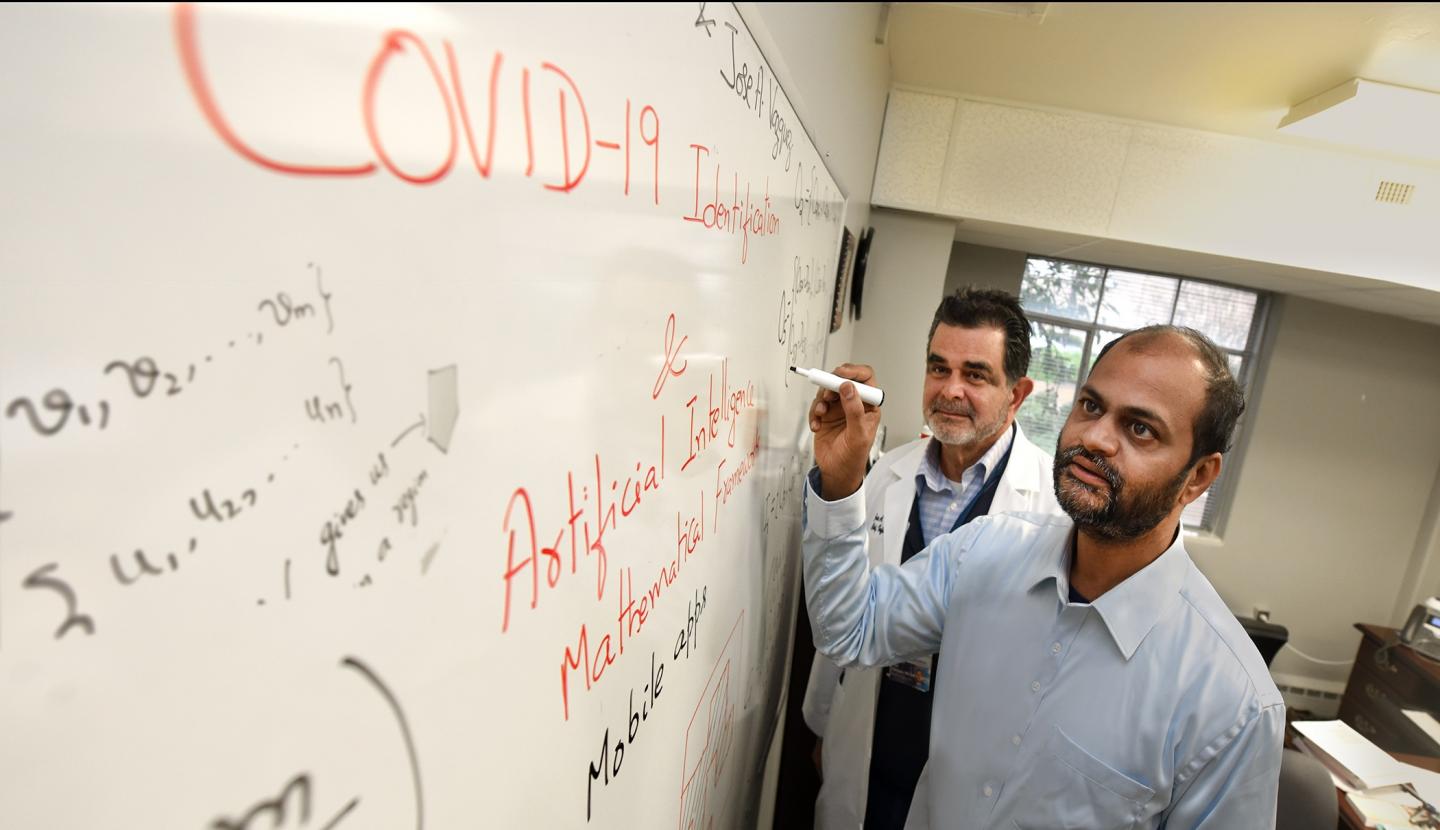An AI-powered coronavirus app will soon enable individuals to get free at-home risk assessment in just about a minute, based on how they feel and where they’ve been.
It will also direct those deemed at risk to the nearest definitive testing facility, Medical College of Georgia investigators have reported in the journal ‘Infection Control & Hospital Epidemiology’.
Once the app is ready, it will live on the augusta.edu domain and likely in app stores on the iOS and Android platforms.
The app is also aimed at providing local and public health officials with real time information on emerging demographics of those most at risk for coronavirus so they can better target prevention and treatment initiatives.
“We wanted to help identify people who are at high risk for coronavirus, help expedite their access to screening and to medical care and reduce spread of this infectious disease,” says Dr. Arni S.R. Srinivasa Rao, director of the Laboratory for Theory and Mathematical Modeling in the MCG Division of Infectious Diseases at Augusta University and the study’s corresponding author.

CREDIT: Phil Jones, Senior Photographer, Augusta University
Rao and co-author Dr. Jose Vazquez, chief of the MCG Division of Infectious Diseases, are working with developers to finalize the app which should be available within a few weeks.
The app will ask individuals where they live; other demographics like gender, age and race; and about recent contact with an individual known to have coronavirus or who has traveled to areas, like Italy and China, with a relatively high incidence of the viral infection in the last 14 days.
It will also ask about common symptoms of infection and their duration including fever, cough, shortness of breath, fatigue, sputum production, headache, diarrhea and pneumonia. It will also enable collection of similar information for those who live with the individual but who cannot fill out their own survey.
AI at work
Artificial intelligence (AI) will then use an algorithm that Rao developed to rapidly assess the individual’s information, and send them a risk assessment — no risk, minimal risk, moderate or high risk. This, even as it alerts the nearest facility with testing ability that a health check is likely needed.
If the patient is unable to travel, the nearest facility will be notified of the need for a mobile health check and possible remote testing.
The investigators hope this readily available method to assess an individual’s risk will actually help quell any developing panic or undue concern over coronavirus, or COVID-19.
“People will not have to wait for hospitals to screen them directly,” says Rao. “We want to simplify people’s lives and calm their concerns by getting information directly to them.”
Tests for the coronavirus, which include a nostril and mouth swab and sputum analysis, are now being more widely distributed by the CDC.
The Food and Drug Administration also has given permission to some labs, particularly those at academic medical centers like the Augusta University Medical Center, to use their own methods to look for signs of the viral infection.
